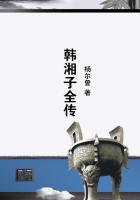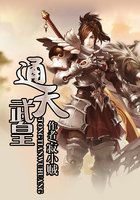The Last Stage of the Columbia On the thirteenth of April the party reached the series of falls and rapids which they called the Long Narrows. At the point reached the river is confined, for a space of about fourteen miles, to narrow channels and rocky falls. The Long Narrows are now known as the Dalles. The word "dalles" is French, and signifies flagstones, such as are used for sidewalks.
Many of the rocks in these narrows are nearly flat on top, and even the precipitous banks look like walls of rock.
At the upper end of the rapids, or dalles, is Celilo City, and at the lower end is Dalles City, sometimes known as "The Dalles." Both of these places are in Oregon; the total fall of the water from Celilo to the Dalles is over eighty feet.
Navigation of these rapids is impossible. As the explorers had no further use for their pirogues, they broke them up for fuel.
The merchandise was laboriously carried around on the river bank.
They were able to buy four horses from the Skilloots for which they paid well in goods. It was now nearly time for the salmon to begin to run, and under date of April 19 the journal has this entry:--"The whole village was filled with rejoicing to-day at having caught a single salmon, which was considered as the harbinger of vast quantities in four or five days. In order to hasten their arrival the Indians, according to custom, dressed the fish and cut it into small pieces, one of which was given to each child in the village.
In the good humor excited by this occurrence they parted, though reluctantly, with four other horses, for which we gave them two kettles, reserving only a single small one for a mess of eight men. Unluckily, however, we lost one of the horses by the negligence of the person to whose charge he was committed.
The rest were, therefore, hobbled and tied; but as the nations here do not understand gelding, all the horses but one were stallions; this being the season when they are most vicious, we had great difficulty in managing them, and were obliged to keep watch over them all night.
. . . . . . . . . .
As it was obviously our interest to preserve the goodwill of these people, we passed over several small thefts which they committed, but this morning we learnt that six tomahawks and a knife had been stolen during the night. We addressed ourselves to the chief, who seemed angry with his people, and made a harangue to them; but we did not recover the articles, and soon afterward two of our spoons were missing. We therefore ordered them all from our camp, threatening to beat severely any one detected in purloining.
This harshness irritated them so much that they left us in an ill-humor, and we therefore kept on our guard against any insult.
Besides this knavery, the faithlessness of the people is intolerable; frequently, after receiving goods in exchange for a horse, they return in a few hours and insist on revoking the bargain or receiving some additional value.
We discovered, too, that the horse which was missing yesterday had been gambled away by the fellow from whom we had purchased him, to a man of a different nation, who had carried him off.
We succeeded in buying two more horses, two dogs, and some chappelell, and also exchanged a couple of elk-skins for a gun belonging to the chief . . . One of the canoes, for which the Indians would give us very little, was cut up for fuel; two others, together with some elk-skins and pieces of old iron, we bartered for beads, and the remaining two small ones were despatched early next morning, with all the baggage which could not be carried on horseback.
We had intended setting out at the same time, but one of our horses broke loose during the night, and we were under the necessity of sending several men in search of him. In the mean time, the Indians, who were always on the alert, stole a tomahawk, which we could not recover, though several of them were searched; and another fellow was detected in carrying off a piece of iron, and kicked out of camp; upon which Captain Lewis, addressing them, told them he was not afraid to fight them, for, if he chose, he could easily put them all to death, and burn their village, but that he did not wish to treat them ill if they kept from stealing; and that, although, if he could discover who had the tomahawks, he would take away their horses, yet he would rather lose the property altogether than take the horse of an innocent man.
The chiefs were present at this harangue, hung their heads, and made no reply.
"At ten o'clock the men returned with the horse, and soon after an Indian, who had promised to go with us as far as the Chopunnish, came with two horses, one of which he politely offered to assist in carrying our baggage.
We therefore loaded nine horses, and, giving the tenth to Bratton, who was still too sick to walk, at about ten o'clock left the village of these disagreeable people."
At an Indian village which they reached soon after leaving that of the disagreeable Skilloots, they found the fellow who had gambled away the horse that he had sold. Being faced with punishment, he agreed to replace the animal he had stolen with another, and a very good horse was brought to satisfy the white men, who were now determined to pursue a rigid course with the thievish Indians among whom they found themselves. These people, the Eneeshurs, were stingy, inhospitable, and overbearing in their ways.
Nothing but the formidable numbers of the white men saved them from insult, pillage, and even murder. While they were here, one of the horses belonging to the party broke loose and ran towards the Indian village.
A buffalo robe attached to him fell off and was gathered in by one of the Eneeshurs. Captain Lewis, whose patience was now exhausted, set out, determined to burn the village unless the Indians restored the robe.
Fortunately, however, one of his men found the missing article hidden in a hut, and so any act of violent reprisal was not necessary.
So scarce had now become fuel, the party were obliged to buy what little wood they required for their single cooking-fire.















